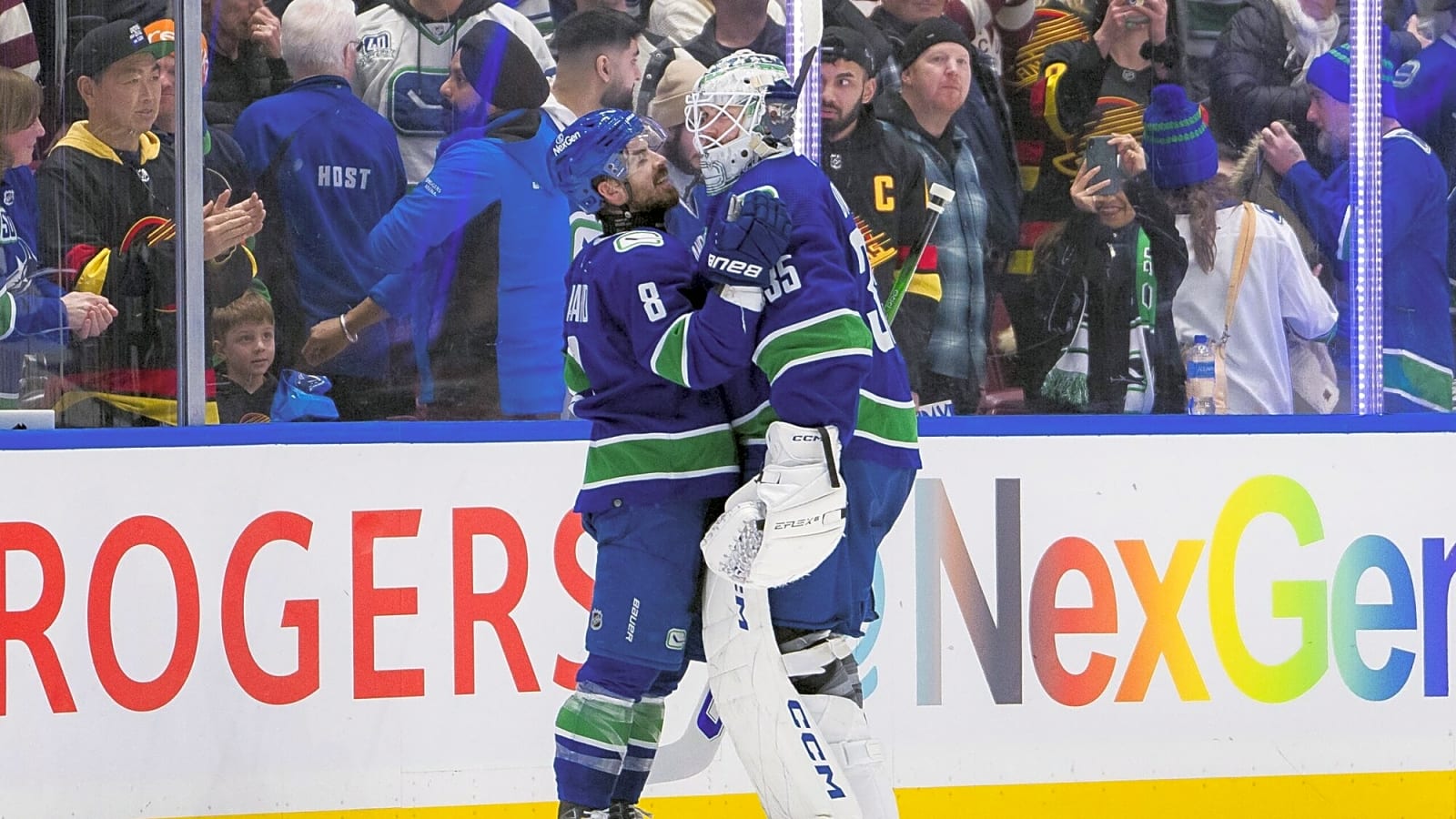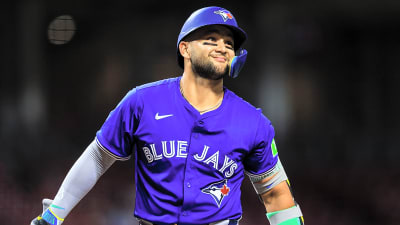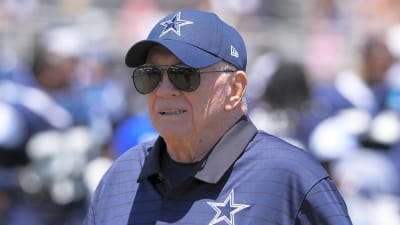
The date of July 1, 2026, will be an important one for the Vancouver Canucks franchise. It’s the day on which captain Quinn Hughes becomes eligible to sign a contract extension. So, July 1 will either be the day on which he signs said extension, or the day on which the fact that he didn’t sign an extension becomes the domineering headline for the year.
But July 1, 2026, is also the day on which two other major contract extensions come into effect: those belonging to Thatcher Demko and Conor Garland. Each signed on July 1, 2025, as soon as they were eligible – Demko for three years at an $8.5 million AAV, and Garland for six years at a $6 million AAV. They’ll play the entire 2025-26 season under their previous deals before the new ones kick in.
When they happened, the extensions were a bit surprising. With so much focus on players potentially leaving Vancouver, perhaps not enough consideration was given to the possibility of them staying. But in any case, in the few months since the extensions were announced, they’ve become even more surprising – or, to be slightly more accurate, they’ve become more standout. Why?
Because in extending their contracts early, Demko and Garland are proving to be the exceptions of the 2026 UFA class.
The set of players set to hit unrestricted free agency in the Summer of 2026 contains many notable names. The biggest is obviously Connor McDavid, but he’s joined by the likes of Kirill Kaprizov, Jack Eichel, Alex Ovechkin, Artemi Panarin, Martin Necas, Alex Tuch, and more. It’s a very top-heavy class.
How top-heavy is it? Top-heavy enough that Garland’s most recent season of 50 points only has him ranked in a tie for 17th in scoring among 2026 UFAs (or would-be UFAs, in his case.)
No upcoming UFA who scored more than Garland last year has signed an extension as of yet. In fact, Garland is one of just four skaters from the 2026 class to have signed an extension thus far. The other three are Parker Kelly of the Colorado Avalanche (19 points last year), Josh Manson of the Colorado Avalanche (15), and Kaedan Korczak of the Vegas Golden Knights (10).
In other words, Garland is the only skater from his UFA class anywhere approaching top-of-the-lineup quality to have signed an extension.
Demko is in an even more exclusive group – a group of one. He’s the only goaltender from the 2026 UFA class to have signed an extension as of yet. The list of UFA goalies, in general, is fairly considerable, with names like Sergei Bobrovsky, Jacob Markstrom, Filip Gustavsson, Frederik Andersen, Anthony Stolarz, Jet Greaves, and, yes, Stuart Skinner.
That’s a more sizeable list of starting (or pseudo-starting) goaltenders than one usually sees on the upcoming UFA chart. But that list is absent one more starting goalie, and probably the one with the best blend of talent and age – health aside – in Demko.
So, the point here is pretty much what we said at the outset: in having signed their extensions a year ahead of time, Demko and Garland were unique. And for each month that passes without more of their peers having joined them in re-upping, they become even more unique.
But what does it mean for the Canucks?
The most obvious things the team gets by having its two most prominent UFAs locked up already are stability, continuity, and an avoidance of the stress that comes with in-season negotiations. For an example of what we’re talking about, take a gander over at the crisis mode the Edmonton fanbase has already whipped itself into over McDavid’s lack of an extension. Sure, neither Garland nor Demko will ever approach the almighty status of a McDavid, but it’s nice to avoid that sort of storyline altogether – at least for another year.
Speaking of Hughes, one has to think that a little extra certainty about the Canucks’ roster – particularly as it pertains to two of his best friends in Demko and Garland – is only going to help the chances of him eventually staying. At the very least, it can’t hurt!
There’s also a serious economic factor to consider. The explosion of salaries that was predicted for this offseason didn’t exactly come to pass, as GMs seemed a bit hesitant to spend all of the cap space suddenly made available to them by the skyrocketing cap ceiling. As a result, there’s more unused cap space sitting around the league than ever before.
But perhaps that should have been expected. NHL GMs are notoriously slow to change. So, when we hit the 2026 offseason, we should probably get ready for more spending to occur, with everyone having had an extra year to adjust to the new financial reality.
We’ve already seen Kirill Kaprizov (reportedly) turn down an extension with the Wild to the tune of eight years and a $16 million AAV, which would have been the richest contract in NHL history. Kaprizov’s situation may be unique, as it could be that he just doesn’t want to stick around in Minnesota. But there are already whispers that he could be expecting an offer of up to seven years at $20 million to be waiting for him on the UFA market.
That’s a good indicator that the contracts are going to get a little silly next summer. But not for Demko and Garland, who are already in the books. This means that their $8.5 million and $6 million cap hits, respectively – which already look to be on the fairer side of things – should look even better in comparison the longer we go on.
Sure, there are some risks at play, too, especially when it comes to Demko’s health. But when one looks at that whopping list of big name 2026 UFAs, one can’t help but feel at least a little satisfaction that the Canucks’ own are already locked up.
And they’re the only ones. Really, when was the last time you can remember the Vancouver Canucks being ahead of the curve on something?
More must-reads:
- Penguins' Sidney Crosby makes big statement about future amid trade rumors
- Training-camp battles to watch in NHL's Eastern Conference
- The 'NFL's three-passing TD game leaders' quiz
Customize Your Newsletter
 +
+
Get the latest news and rumors, customized to your favorite sports and teams. Emailed daily. Always free!








